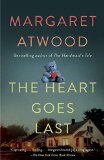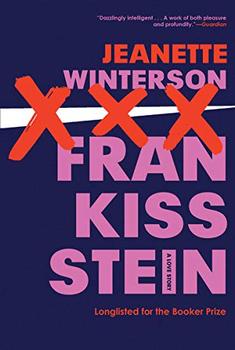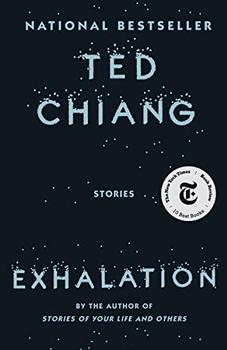Summary | Excerpt | Reading Guide | Reviews | Beyond the book | Read-Alikes | Genres & Themes | Author Bio

A Novel
by Margaret AtwoodCharmaine and Stan are a newly married couple totally down on their luck. They're living in their car because Stan's unemployed and the only income is from Charmaine's few shifts at the local bar. Being homeless is dangerous what with all the hooligans and gang members prowling everywhere.
When Charmaine sees an ad about the experimental town of Consilience and its Positron project, it sounds like the answer to their problems. In Consilience they'll get a fully furnished house and real jobs, with the only catch being that every other month they have to stay in the Positron prison. The deal is all or nothing: you're in for life, or you're out on your own. Stan and Charmaine are so desperate for a bed, home-cooked meals and jobs that their choice is easy.
This juicy subject matter is just right for the kind of speculative fiction at which Atwood excels. Of course, even before you start reading, you suspect that something is going to go wrong. In this case, it starts with a (seemingly) accidental encounter between Charmaine and the man who lives in her house in Consilience, while she and Stan are doing their month in Positron. This chance meeting turns into an affair.
One might wonder why Charmaine, who adores her husband, would stray. The answer is boredom. The residents of Consilience are completely cut off from the outside world. Drugs and alcohol are banned. The people running the project control the airwaves piping in the most mundane 1950s era music, movies and television, and weekly pep talks. This kind of isolation is hardly conducive to making friends and the yawn-inducing sterility is enough to make even the most faithful spouse look for a little excitement.
When Atwood wrote about debt in her non-fiction work Payback: Debt and the Shadow Side of Wealth, she spoke about trickle-down economics saying that "the metaphor is not that of a gushing waterfall but of a leaking tap: even the most optimistic endorsers of this concept do not picture very much real flow, as their language reveals." Debt, on the other hand, can very quickly become a deluge, forcing people to grasp at almost anything - no matter how radical - just to keep their heads above water. In the crumbling economic world in which The Heart Goes Last is set, Atwood posits that some will turn to violence and crime, while others - such as her protagonists - prefer to opt for a revolutionary idea, such as the Positron/Consilience project, to save them.
While reading this book, it occurred to me that Atwood has made a new version of George Orwell's Animal Farm. Orwell's allegorical acerbic look at Soviet Russia still makes people think of Communism and Socialism as dirty words. However, Atwood seems to take a slightly different attitude, and reminds us that the philosophies behind those societies, in their purest forms, can provide answers to problems caused by rabid greed and from democracies becoming oligarchies. The problems come, and here Atwood agrees with Orwell, when the collective has no democratic elements, so the ruling class can enslave the workers, and set up their own autocracy.
Although the plot elements in The Heart Goes Last sound mostly damning, Atwood adds no small amount of good things about the Consilience project: it subscribes to a green living model with self-sustaining industries and economic stability. And while most dystopian novels are as dark as the communities they describe, thankfully, Atwood avoids this trap by using humor. The technique allows her to be even more biting in her attitudes regarding greed, while simultaneously keeping her protagonists from being tedious. This also emphasizes their humanity, which is vitally essential to the overall plot.
The Heart Goes Last is a masterful piece of prose that's a page-turner to the very end, and a novel that I highly recommend.
![]() This review was originally published in The BookBrowse Review in October 2015, and has been updated for the
August 2016 edition.
Click here to go to this issue.
This review was originally published in The BookBrowse Review in October 2015, and has been updated for the
August 2016 edition.
Click here to go to this issue.

If you liked The Heart Goes Last, try these:

by Jeanette Winterson
Published 2020
What will happen when homo sapiens is no longer the smartest being on the planet? In fiercely intelligent prose, Jeanette Winterson shows us how much closer we are to that future than we realize. Funny and furious, bold and clear-sighted, Frankissstein is a love story about life itself.

by Ted Chiang
Published 2020
From an award-winning science fiction writer, the long-awaited new collection of stunningly original, humane, and already celebrated short stories.
Your guide toexceptional books
BookBrowse seeks out and recommends the best in contemporary fiction and nonfiction—books that not only engage and entertain but also deepen our understanding of ourselves and the world around us.